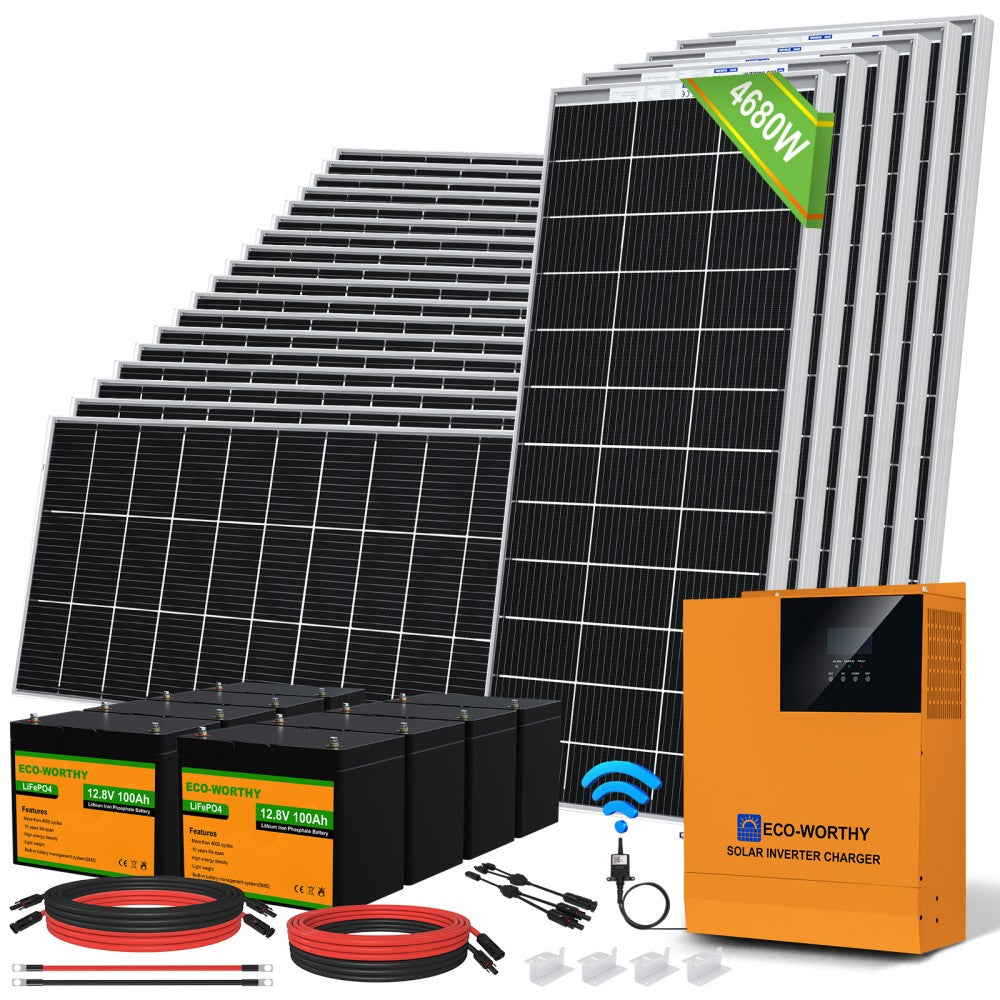The agriculture industry is the backbone of many economies worldwide. With the increasing demand for sustainable and efficient farming practices, off-grid solar systems have emerged as a revolutionary solution. This article delves into the myriad benefits of off-grid solar systems in the agriculture industry, offering a fresh perspective on how these systems can transform farming practices globally.

Energy Independence and Reliability
One of the primary advantages of off-grid solar systems in agriculture is the energy independence they provide. Farmers no longer need to rely on the often unreliable grid power supply. Instead, they can harness the sun's energy to power their operations. This independence ensures a consistent energy supply, crucial for activities such as irrigation, refrigeration, and lighting.
For instance, in remote areas where grid connectivity is sparse or non-existent, off-grid solar systems can be a game-changer. Farmers can maintain their productivity without worrying about power outages or the high costs associated with diesel generators.
Cost-Effectiveness
Another significant benefit of off-grid solar systems in the agriculture industry is cost-effectiveness. While the initial investment in solar panels and batteries might seem high, the long-term savings are substantial. Solar energy is free, and once the system is installed, the maintenance costs are minimal.
Consider a farmer who spends a considerable amount on diesel for generators. By switching to an off-grid solar system, they can drastically reduce their fuel expenses, leading to higher profit margins. Moreover, many governments offer incentives and subsidies for adopting renewable energy solutions, further reducing the financial burden on farmers.
Environmental Sustainability
In today's world, where climate change is a pressing concern, the agriculture industry must adopt sustainable practices. Off-grid solar systems contribute significantly to environmental sustainability by reducing the carbon footprint of farming operations. Unlike fossil fuels, solar energy is clean and renewable, producing no harmful emissions.
For example, a farm using solar-powered irrigation systems not only saves on energy costs but also reduces its greenhouse gas emissions. This shift towards greener practices can enhance the farm's reputation and appeal to environmentally conscious consumers.
Enhanced Productivity and Efficiency
Off-grid solar systems can also enhance productivity and efficiency in the agriculture industry. With a reliable and consistent power supply, farmers can optimise their operations. Automated systems, such as solar-powered irrigation and greenhouse climate control, can operate seamlessly, ensuring optimal growing conditions for crops.
Imagine a scenario where a farmer uses a solar-powered drip irrigation system. This system can deliver water directly to the plant roots, reducing water wastage and ensuring that crops receive the right amount of moisture. Such precision farming techniques can lead to higher yields and better-quality produce.
Conclusion
The benefits of off-grid solar systems in the agriculture industry are manifold. From energy independence and cost savings to environmental sustainability and enhanced productivity, these systems offer a holistic solution to modern farming challenges. As the world continues to seek sustainable and efficient agricultural practices, off-grid solar systems will undoubtedly play a pivotal role in shaping the future of farming.
By embracing this innovative technology, farmers can not only improve their operations but also contribute to a greener and more sustainable planet. The agriculture industry stands at the cusp of a renewable energy revolution, and off-grid solar systems are leading the charge.










